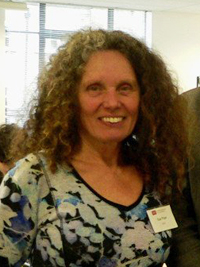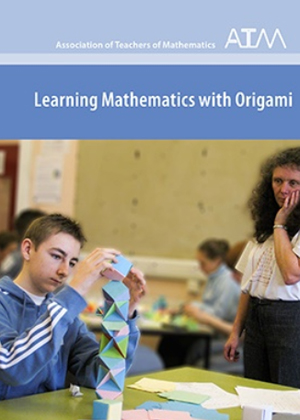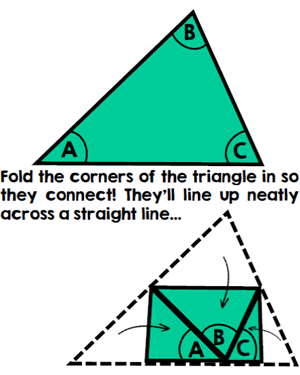Sue Pope is head of service: science, mathematics and core skills at the Scottish Qualifications Authority, where she was worked since 2018. Prior to this she held roles at Manchester Metropolitan University, the University of Manchester, Liverpool Hope University and the University of Roehampton, as well as the Northamptonshire Inspection and Advisory Service and the Qualifications & Curriculum Authority. Sue is a specialist in assessment, curriculum design and development, as well as teaching, initial teacher education and staff development.

“…there are so many careers where having mathematics helps you. There’s lots of evidence that if you’ve got a qualification in mathematics the chances are you will be earning more than someone doing the same job as you who hasn’t got that mathematics qualification because the way you think as a result of studying mathematics is highly prized…”
Career to date
When I was at school, I always enjoyed mathematics and the sciences. I went to university and then I did my doctorate in theoretical chemistry, so a lot of mathematics, chemistry and quantum mechanics.
Then I went to work for Wellcome pharmaceuticals in drug design. They had a lot of people working in laboratories but I was working on the computer side, which I really enjoyed. I enjoyed most working with people from other parts of the organisation, helping them to understand what we were doing as theoretical chemists. That was what made me think that maybe I’d quite like to get into teaching.
So, I did my initial teacher education in Leicester. I was very fortunate to have some inspirational tutors. I didn’t know what I wanted my teaching to be like, I just knew that it needed to be different to what I’d experienced.
I remember being very impressed at one school where a friend of mine had worked very hard to get a CSE grade 5 (equivalent to the lowest GCSE grade you can get). She’d worked incredibly hard for that, much harder than I ever did. I was struck by the idea that whatever teaching was going to be like it needed to be teaching that was good for all learners, and not just the ones who were ‘successful’, the ones who went on and got good grades and go to university.
I was extremely lucky because I did my initial teacher education just as GCSEs and coursework were being introduced. I went to wonderful schools and I had wonderful tutors, people like Barbara and Derek Ball, who are quite long retired, but I still have the pleasure of interacting with them occasionally.
They taught me how mathematics could be brought to life and be something that could make sense to a really wide range of learners, being accessible and exciting and creative. That inspired me for my career as a teacher and I taught in school for about ten years, five years of which I was a head of department.
I worked with a team who were passionate about making mathematics come alive for young people, using technology, practical work, getting out and about and seeing mathematics in the world around you. The National Curriculum came along and that gave us opportunities to work across primary and secondary, and to think about the way in which we assess learners, understand their achievements and develop a dialogue.
I then worked for a short time as a local authority advisor in mathematics managing a small team of advisory teachers, and that got me into working with primary colleagues. It was in the days when they used to have five, ten or even twenty-day courses for primary teachers who wanted to develop their practice in mathematics. When the National Numeracy Strategy came along, I was working in the local authority. I didn’t believe in saying to people: “There’s one right way to teach.”
I was very fortunate and I got a job working at Froebel College, Roehampton, now the University of Roehampton and again, I worked with inspirational people, people who influenced me very greatly, people like Chris Hopkins, Sandy Pepperell, Sue Gifford, wonderful people who inspired teachers – both primary and secondary – to want to make a difference for the young people and children they work with.
I was there for about five years, which was in London. During that time, I became an external examiner, which took me off visiting student teachers in other parts of the country. Travelling to schools in London was very painful driving through suburbia, so I managed to get a job in Lancaster (where I still live today). The role was at St Martin’s College (now the University of Cumbria). I was there for about five years working with beginner teachers.
In 2007, I took up the post as lead for Mathematics 5-19 at the Qualifications & Curriculum Authority in England. It was an exciting time implementing a new secondary curriculum and associated assessments and qualifications. Then the Rose Review of the Primary Curriculum – the best primary mathematics curriculum we never had! The coalition government got rid of many quangos including QCA.
I returned to working in universities – Liverpool Hope, University of Manchester and finally at Manchester Metropolitan University. My last post was initially as lead for STEM, which I enjoyed in many ways, but universities are challenging places to be.
I moved to my current role at the Scottish Qualifications Authority in 2018, where I manage all of the science and mathematics qualifications development amongst other things. I have a wonderful team of people who do their jobs to the very best of their ability, whatever the challenges.
And why mathematics? I suppose because I always loved it when I was at school. Mathematics was my first love and so I was very pleased to teach it. It’s very different to teaching science as you’ve got less to worry about – scissors, glue and tape measures – whereas science can be more challenging with all that glass equipment! Both are cognitively challenging, which makes them difficult both to teach and to learn.
Throughout my career, I’ve been very heavily involved with the professional associations, the subject associations, so the Association of Teachers of Mathematics (ATM), the Institute of Mathematics and its Applications, and other organisations where I’ve been involved in various committees. I’ve been involved as a volunteer and trustee, helping to run the organisation because I think community is so important. Being part of a professional community really helps you in your career and helps you learn.
Looking ahead to the talk – ‘Using Origami in the Mathematics Classroom’

If I want young people to have a 3D model of something to work on, they can make it for themselves using paper folding. There’s something very satisfying about doing something as simple as folding paper to give yourself an artefact with which you can work to explore some mathematical idea.
How the way mathematics is taught is changing
It’s a long and slow revolution. If you went into some mathematics classrooms you might see quite a lot of what you remember yourself from when you were at school but there is a growing awareness of a need to develop understanding as well as technical competence.
It’s not just whether you can solve the quadratic equation, or can differentiate a function, or can complete the calculation effectively, it’s actually – do you understand what you’re doing and why and how does it work? It’s so you have a sense of how things are connected.

Many children will learn half the base multiplied by the height to get the area of the triangle without necessarily appreciating that it comes from the smallest surrounding rectangle; so teaching children about where rules come from and how they work, not only the techniques to use, can really help to bring mathematics to life. Mathematics is a subject that can make sense, as it is highly interconnected.
Teaching mathematics with technology
There are all sorts of wonderful technological applications that you can use in the classroom to help you teach mathematics. Probably one of the most popular is something called GeoGebra. It is completely free and it allows you to create models. It is dynamic mathematics software for all levels of education that brings together geometry, algebra, spreadsheets, graphing, statistics and calculus in one place.
Nowadays, with technology, you can explore whole families of graphs so you can really understand what it means when we talk about straight-line graphs and what the variables and the coefficients actually do.
I think the Internet provides access to really rich resources: nrich, is based at the University of Cambridge provides a fantastic resource of puzzles and problems for the teachers and young people to use. Many of these resources are linked to the curriculum to make it easier for teachers to incorporate problem-solving into their day to day work.
ATM has been developing Maths Snacks, which are freely available resources that teachers, learners, parents and carers can access directly, so there’s a real wealth of material available that can really give insight to mathematics, things to whet your appetite and get exploring to develop mathematical understanding along with surprises and delight.
The importance of studying mathematics
There’s a paper entitled “I would rather die”: reasons given by 16-year-olds for not continuing their study of mathematics, which was some research that Margaret Brown, Peter Brown and Tamara Bibby did on girls and studying mathematics and whether you might carry on after your GCSEs to do A-levels.
There are so many careers where having mathematics helps you. There’s lots of evidence that if you’ve got a qualification in mathematics the chances are you will be earning more than someone doing the same job as you who hasn’t got that mathematics qualification because the way you think as a result of studying mathematics is highly prized.
There are tremendous opportunities but there’s also so many links. Sometimes people think mathematics is just about STEM but actually mathematics is everywhere – in business, in economics, in art and design…
One of the challenges we have in mathematics is to help people to appreciate the power of mathematics and that it is something everyone can do. There’s a charity called National Numeracy that tries to promote mathematical literacy for everyone because it makes such a difference to your life.
Not having basic competence with mathematics is a bigger barrier to employment even than literacy. Most people would say that literacy is really important but so is numeracy or mathematical literacy. They’re both essential for functioning well in modern society.
They’ve recently developed new qualifications in England called Core Maths, which is about using your mathematics to solve everyday problems that will keep your mathematical skills honed and developed. Its popularity is modest but it’s very different from AS and A level mathematics so it is important for young people to have a go.
In Scotland, they’ve just developed a new qualification called Applications of Mathematics at Higher Level, where we will be developing learners’ skills in statistics, problem-solving, use of spreadsheets and financial mathematics – the sorts of mathematics that you need to survive and thrive in modern society and to be well prepared for further study.
The launch is next year and all the information is now available on the SQA website. I am really excited about that new qualification. It’s a little like Core Maths but as I say it is a Higher, so we’re hopeful that lots of people will be wanting to do it, including girls.
Mathematics in modern society
It is vital to make sure people are aware of the power and ubiquity of mathematics in modern society. People should draw on things like the history of mathematics, the uses of mathematics in society and the importance of mathematics in terms of currency for their future both in work, but also for further study.
The vast majority of degrees use or require mathematics, albeit GCSE type level mathematics – percentages, statistics etc. But mathematics is a skill – it’s like sport, it’s like music – if you don’t use it you will lose it, so continuing your study of mathematics beyond age 16 is really important. That’s where the Core Maths qualification and the new Higher in Applications of Mathematics come in because we hope that so many more young people will see the benefit and enjoy learning mathematics beyond the compulsory phase.
Plans for the future
We’ve got some of the universities in Scotland developing training for teachers to teach the new Higher. There’s an organisation in Scotland called Scholar, which has a lot of online learning resources for support learners in Scotland, and Scottish Government is supporting their development of materials for Applications of Mathematics.
Unlike the rest of the UK, Scotland has great participation in the STEM subjects but it’s not great enough and so SQA is working with colleagues and organisation across the country to raise awareness of the potential of STEM for people’s futures and to encourage them to engage with the wide range of courses and qualifications that we have, providing ways to recognise learner achievement whatever they choose to study in a way that best suits them.
https://www.linkedin.com/in/sue-pope-a7304924/





